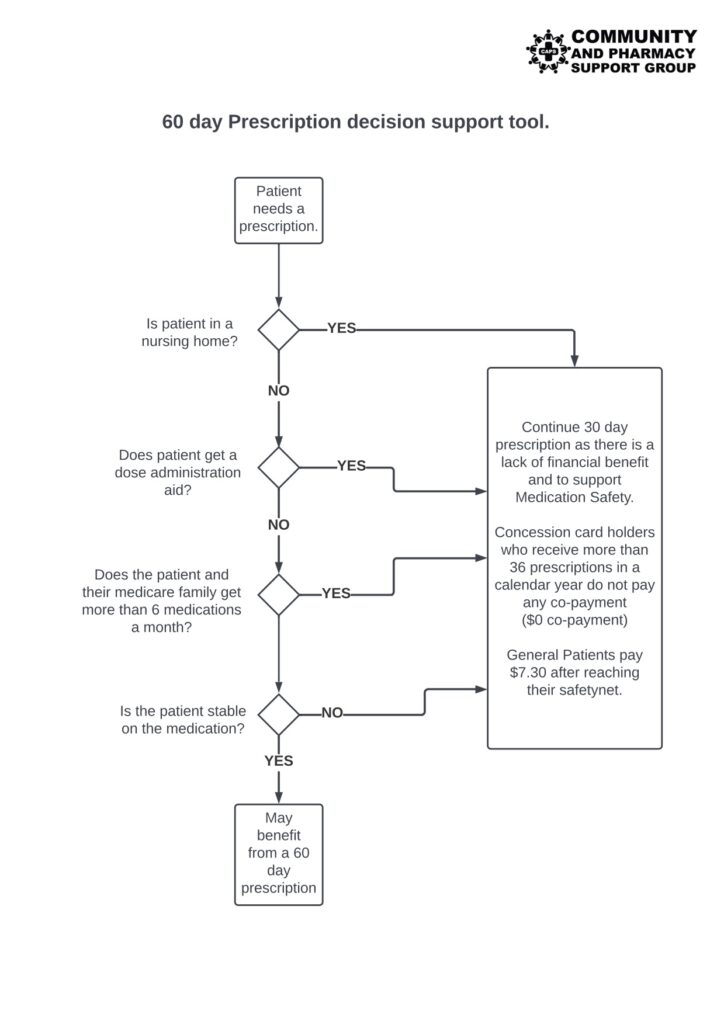The pharmacy advocacy group has written to all doctors asking whether ‘government savings trump clinical care’.
Dear Doctors, if you’re wondering how to do your job in the confusing age of 60-day dispensing, the Community and Pharmacy Support Group (CAPS) is here to help.
CAPS, which re-formed in August this year after moving in and out of the shadows since the 1980s, is a pharmacy advocacy group that originated from the Pharmacy Guild of Australia but is now, both groups claim, independent.
It has been animated by the introduction this month of 60-day dispensing, with moves including rallies, calls for complaints and now a letter to “every doctor in the nation” outlining the inequity of the initiative.
The letter, which was provided to The Medical Republic, says that although the aim of the government’s move is “cost of living relief”, the group is concerned “that this measure is not performing as it intended by providing true financial relief for our patients”.
“With 60DD, patients receive double the medication for the same co-payment. As an intended consequence, patients take double the time to reach the safety net,” the letter reads.
“There is NO saving to the patient!”
The move is the government’s “attempt to ‘game’ the system” and to “keep patients off the safety net” the letter suggests.
“Most non-concessional patients’ co-payments are lower than the $30 co-payment, so a 60-day dispensing prescription will just mean that the patient pays double, meaning that there is NO saving.”
The letter goes on to instruct prescribers to ensure that 60-day dispensing is in the “financial best interest” of patients and “meets the clinical guidelines”.
“Does government ‘savings’ trump optimal patient clinical care?” the letter poses.
It asks prescribers not to prescribe 60 days’ worth of medication to patients that will reach the safety net and suggests asking a community pharmacist for guidance on this.
The letter suggests that people or families will reach the safety net if they take 36 PBS prescriptions a year and that these patients, including concessional Closing the Gap patients that don’t pay a co-payment, won’t financially benefit from 60-day script.
Webster-Pak patients should not be given 60-day scripts as “fee associated with the packing will be increased by Pharmacies, therefore negating any ‘savings’ the patients receive”, the letter adds.
Posed to prescriber for their consideration are two questions:
- “Do you believe that providing the government with data on stable patients (by prescribing 60DD) will allow the Health Department to come back and reduce the billing fee associated with care plans (at their next review into the MBS); as care plans are written to manage chronic disease states?”
- “Do you believe prescribing stable medications via 60DD gives the government further impetus to allow Pharmacists to prescribe these medicines?”
Attached to the letter, CAPS has provided a tool to help prescribers make decisions in the best interests of their patients.
Most roads – surprise – lead away from 60DD:

The second attachment is a tabular breakdown outlining the “losers of 60DD”.
According to CAPS’ calculations, the annual costs for all general patients taking eight or less medicines per month will reduce due to 60-day dispensing. Savings will range from $180 to $720 depending on number of scripts.
But “the benefit from the 60DD proposal is skewed inexplicably towards someone taking three to four medicines at the expense of someone taking more medicines under the general copay” says CAPS.
“The logic is that this measure should help people who are paying more for the medicines, but it does not stack up due to the existence of safety net.”
CAPS calculations suggest that those on more than eight medicines will receive no benefit as they will meet the safety net.
“The safety net kicks in for general patients when they reach $1563.50 (2023 figures) effectively limiting the cost.
“As a result, the 60DD proposal skews the benefit towards people who never reached the safety net at the expense of ‘sicker’ and more vulnerable [people].”
For concession patients, again the benefits are skewed to those on three or four scripts, CAPS argues.
“The benefit to patient is $0 for anyone (or a couple or family on concession) that take 6 or more medicines per month.”
“The policy is poorly designed due to the Safety Net Threshold which kicks in at 36 scripts per calendar year.”
CAPS says that 60-day-dispensing provides “absolutely zero benefit” in savings or convenience as most patients will have to visit the pharmacy for medicines not on the government’s list of medicines eligible for 60-day scripts.
The letter concludes with a plea that prescribers contact pharmacists before writing 60-day scripts “to ensure it is in the best interest of the patients now and into the future”.
The group is reported to be organising a rally in Sydney in November.





